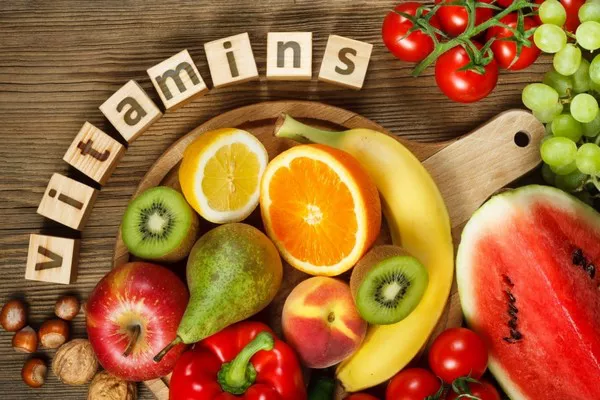Your twenties are a time of growth, exploration, and establishing healthy habits that can set the foundation for a vibrant life ahead. Proper nutrition plays a crucial role in supporting your overall well-being during this transformative decade. In this article, we will delve into the essential vitamins you should consider incorporating into your diet to promote optimal health and well-being in your 20s. From bone health and immunity to energy levels and skin radiance, these vitamins can help you thrive as you navigate the challenges and opportunities of this exciting phase of life.
1. Vitamin D: Nurturing Bone Health
The Role of Vitamin D
Vitamin D is essential for calcium absorption and bone health. During your twenties, bone density peaks, making it crucial to ensure you’re getting adequate vitamin D to support strong bones and prevent future issues like osteoporosis.
See Also: Why Vitamin D Matters: Things You Need to Know
Sun Exposure
Your body produces vitamin D when exposed to sunlight. Aim for at least 10-15 minutes of sun exposure a few times a week, but be cautious about overexposure and wear sunscreen.
Dietary Sources
Include vitamin D-rich foods in your diet, such as fatty fish (salmon, mackerel), fortified dairy products, and egg yolks. If dietary intake is insufficient, consider a vitamin D supplement under the guidance of a healthcare professional.
See Also: Where Do We Get Vitamin D: Things You Need to Know
2. Vitamin C: Boosting Immunity and Collagen Formation
Immune Support
Vitamin C is renowned for its immune-boosting properties. In your 20s, a strong immune system is vital to combat daily stressors and prevent illnesses that can disrupt your active lifestyle.
See Also: 9 Important Roles of Vitamin C
Collagen Synthesis
Vitamin C plays a key role in collagen synthesis, supporting skin elasticity and overall skin health. It contributes to a youthful complexion and helps combat signs of aging.
Dietary Sources
Citrus fruits, strawberries, bell peppers, and broccoli are excellent sources of vitamin C. Incorporating these foods into your diet can help you meet your vitamin C needs naturally.
See Also: 6 Fruits With The Highest Vitamin C Content
3. B Vitamins: Energizing Your Body
B Vitamins Complex
B vitamins, including B6, B12, and folate, are essential for converting food into energy. They also play a role in brain health, mood regulation, and red blood cell formation.
See Also: Why Are B Vitamins Called B Vitamins: What You Want to Know
Maintaining Energy Levels
Your twenties are often filled with busy schedules and new experiences. B vitamins can help you maintain optimal energy levels and cognitive function to stay focused and alert.
Dietary Sources
Whole grains, lean meats, poultry, fish, legumes, and leafy greens are rich in B vitamins. A balanced diet that includes these foods can provide you with the necessary B vitamins.
4. Vitamin A: Nurturing Skin and Vision
Skin Health
Vitamin A supports skin health and helps prevent dryness and blemishes. It also promotes cell turnover, giving you a radiant complexion.
Vision Support
Vitamin A is essential for maintaining good vision and preventing night blindness. It also plays a role in the health of your eyes’ cornea.
See Also: Benefits & Importance of Vitamin A
Dietary Sources
Include foods rich in vitamin A, such as sweet potatoes, carrots, spinach, and kale, in your meals. These foods can contribute to healthy skin and vision.
See Also: 7 Vegetables Rich in Vitamin A
5. Vitamin E: Antioxidant Defense
Antioxidant Properties
Vitamin E is a powerful antioxidant that helps protect your cells from damage caused by free radicals. This protection supports overall health and may contribute to skin health.
Heart Health
Vitamin E may also support heart health by promoting healthy blood circulation and helping to prevent the oxidation of cholesterol.
See Also: Why Vitamin E Matters: 5 Health Benefits
Dietary Sources
Nuts, seeds, vegetable oils, spinach, and broccoli are good dietary sources of vitamin E. Incorporating these foods into your diet can help you benefit from its antioxidant properties.
Conclusion
In your 20s, investing in your health and well-being through proper nutrition is paramount. By incorporating essential vitamins like vitamin D for bone health, vitamin C for immunity and skin radiance, B vitamins for energy, vitamin A for skin and vision, and vitamin E for antioxidant defense, you can lay the groundwork for a healthy and thriving future. While getting vitamins from whole foods is ideal, supplements can be considered if your diet falls short or if advised by a healthcare professional. Remember that individual needs may vary, and consulting with a healthcare provider or registered dietitian can help you tailor your vitamin intake to your specific health goals and circumstances. With a balanced approach to nutrition and a focus on these essential vitamins, you can embark on your journey through your twenties with vitality and well-being as your companions.


